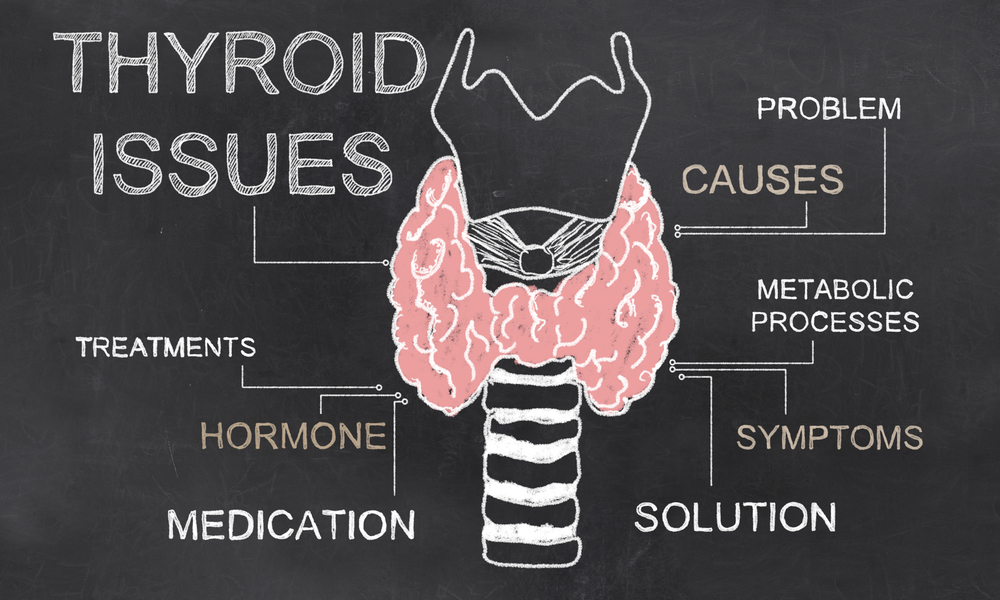The thyroid is a small, butterfly-shaped gland located at the front of the neck, encircling the windpipe. It’s one of many glands in the body, each producing and releasing substances to aid in specific bodily functions. The thyroid’s role is to produce hormones that are crucial for the regulation of many vital body functions. Dysfunction in this gland can have widespread effects on the body. Excessive production of thyroid hormones leads to hyperthyroidism, whereas insufficient production results in hypothyroidism. Both conditions are significant and require medical intervention.
The Function of the Thyroid
The thyroid gland plays a critical role by releasing and regulating hormones that control metabolism—the process by which food is converted into energy. This energy fuels various bodily systems, similar to how a generator powers larger systems. The primary hormones produced by the thyroid are T4 (thyroxine) and T3 (triiodothyronine), which dictate the energy usage of the body’s cells. A well-functioning thyroid maintains an optimal hormone balance to ensure the metabolism operates efficiently. As hormones are utilized, the thyroid replenishes them.
The pituitary gland, situated at the base of the skull, regulates the thyroid by monitoring the hormone levels in the bloodstream. It secretes thyroid stimulating hormone (TSH) to adjust thyroid hormone production, thus maintaining homeostasis.
What Constitutes Thyroid Disease?
Thyroid disease refers to a condition that disrupts the thyroid’s ability to produce the correct hormone levels. In hyperthyroidism, the rapid use of energy can lead to symptoms like fatigue, accelerated heart rate, unintended weight loss, and nervousness. Conversely, hypothyroidism is characterized by fatigue, weight gain, and intolerance to cold due to low thyroid hormone levels. Thyroid disorders can stem from various causes and may be hereditary.
Who Is at Risk for Thyroid Disease?
Thyroid disease does not discriminate; it can impact men, women, infants, teenagers, and the elderly. It may be congenital or develop later in life, often after menopause in women. An estimated 20 million Americans have some form of thyroid disorder, with women being more susceptible than men.
Factors that increase the risk of thyroid disease include:
- A family history of thyroid problems.
- Pre-existing medical conditions such as pernicious anemia, Type 1 diabetes, primary adrenal insufficiency, lupus, rheumatoid arthritis, Sjögren’s syndrome, and Turner syndrome.
- Use of medications high in iodine, like amiodarone.
- Being over the age of 60, particularly for women.
- Prior treatments for thyroid issues or cancer, such as thyroidectomy or radiation.
Symptoms Of Thyroid Disease
Hyperthyroidism – Overactive Thyroid
- Nervousness
- Increased heart rate
- Heat intolerance
- Increased appetite
- Weak nails
- Thinning Hair
- Difficulty Sleeping
Hypothyroidism – Underactive Thyroid
- Fatigue
- Cold Intolerance
- Constipation
- Dry Itchy Skin
- Hair loss
- Weight gain
- Muscle weakness
- Hoarse voice
Diagnosis Of Thyroid Disease
Expect a physical exam and a medical history as the first order of business from your doctor. The follow up to that will be some bloods tests.
Blood Tests:
- Level of Thyroid Stimulating Hormone (TSH)
- Hormone Level for T4
- Anti-thyroid Microsomal Antibody Test
High Levels of TSH – Hypothyroidism
Low Levels of TSH – Hyperthyroidism
An endocrinologist can evaluate your thyroid function and provide appropriate treatment. An endocrinologist is a medical specialist who focuses on diagnosing and treating conditions related to hormones and the endocrine system.
READ MORE: Hormone Replacement Therapy
Sources:
https://www.upmc.com/services/south-central-pa/endocrinology/thyroid/symptoms#:~:text=According%20to%20the%20American%20Thyroid,are%20unaware%20of%20their%20condition
https://thesurgicalclinics.com/signs-thyroid-isnt-working-right/
https://www.yalemedicine.org/conditions/thyroid-disease#:~:text=How%20are%20thyroid%20disorders%20diagnosed,indication%20of%20a%20thyroid%20disorder.
https://healthsurgeon.com/health/hormone-trouble-when-to-see-an-endocrinologist/
